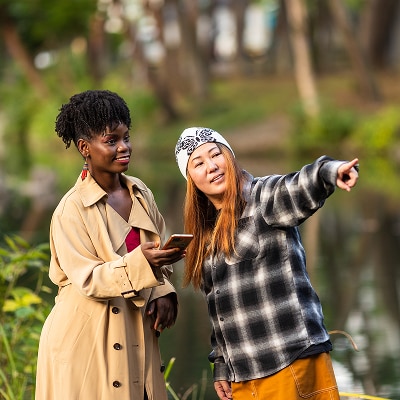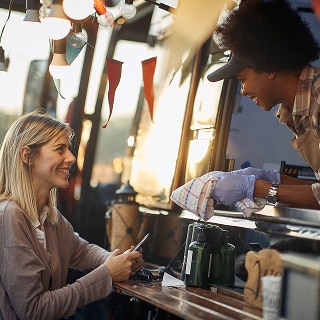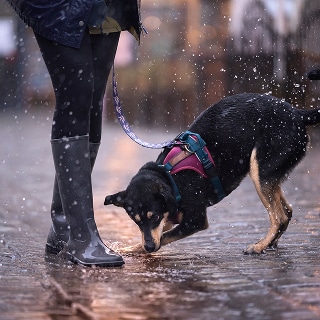
Discover a collection of stories from our authorities on the Longevity Lifestyle, created by ROAR Forward, a collaborative of longevity thought leaders and content creators.
You probably don’t think twice about helping people, like when you deliver soup to a friend who has a cold or point a lost stranger in the right direction. You do, however, know exactly how these acts of kindness make you feel: really good. In fact, giving back to others is better for you than you ever knew.
Benevolence can have personal health payoffs, science says. One study published in Social Science & Medicine found that people had a lower output of cortisol (aka the stress hormone) on the days when they volunteered. Other research has shown that thoughtful deeds release the feel-good hormones dopamine and oxytocin, which explains the phenomenon known as “helper’s high.” In general, the social bonds we create are known to enhance well-being.
“I wish I could prescribe everyone kindness, it only has good side effects.” says Dr. Kelli Harding, an assistant Clinical Professor of Psychiatry at Columbia University. “As a doctor, I first took interest in the topic because I found that people who had kindness in their lives did better with illness and certain conditions.”
Where there’s kindness—at home, in a relationship, at work—there are reduced stress levels, she continues. “And lowered stress is associated with lower blood pressure and lower risk for heart disease.” It’s no wonder that a meta-analysis of studies in BMC Public Health concluded that volunteers are at decreased risk for mortality.

Little Deeds Mean a Lot
If you’re up for a grand gesture, volunteering at the senior center or helping a neighbor paint their backyard shed is a win-win, of course. But you don’t need to make a major commitment to reap the benefits of giving back.
“You could run a marathon in a day or do several shorter runs over a few days and cover an equal distance, and it’s the same with acts of kindness,” notes Dr. Harding, author of The Rabbit Effect: Live Longer, Happier, and Healthier with the Groundbreaking Science of Kindness. Altruism isn’t defined by time or effort: “It’s doing something for someone and not expecting anything in return.” A review of research on benevolent behavior published in Psychological Bulletin found that informal helping was linked to more well-being benefits than formal helping. Technology makes it a no-brainer to put good into the world; it takes less than a minute to zap a you-can-do-it text or leave an upbeat comment.
When troubling events dominate the news, it may seem more essential than ever to be kind. “But the truth is kindness is always important and appreciated—people have struggles they deal with every day,” says Brooke Jones, vice president of The Random Acts of Kindness Foundation. Spreading love at the start of your day, like taking time to hug your family or dog amidst the morning mayhem, can have a domino effect, adds Dr. Harding. You might be in a perkier mood when you get to work and boost a coworker’s spirits, who in turn puts out positive vibes. Kindness keeps on giving, says Dr. Harding: “It’s a virtuous circle.”

Do Good Anytime, Anywhere
Check out these simple ways you can give back during the day.
In the morning…
• Text a friend an inspiring quote, article or podcast.
• Warm your partner’s towel in the dryer.
• Take a minute to chat with the lady at the dry cleaner counter or the barista at the coffeehouse.
• If you grab a muffin or scone, get an extra one for a coworker or your boss.
• Send a “good morning” voice memo to a parent or sibling.
• Pick up a few pieces of litter in the park or neighborhood during your walk. Nobody may notice, but you’ll give back to your community.
In the afternoon…
• Compliment a stranger on their outfit.
• Let a hurried person cut in front of you on the grocery store line.
• Endorse a colleague’s skills on a networking platform.
• Fix the thing that nobody else has—reset the clock on the office microwave, untangle the mess of cords in your brother’s home office.
• Drop off flowers for a neighbor if you garden.
• Ask someone, “How’s your day going?”
• Leave the change in the vending machine.
In the evening…
• Empty the dishwasher or take the dog for a walk, even though it’s your partner’s turn.
• Handwrite a thank-you note.
• Post a nice review for a local mom-and-pop shop.
• Email a teacher to say why you appreciate them.
• Put a random stickie with an encouraging message in a library book for the next reader.
• Be kind to yourself and make a list of three things for which you’re grateful.
Explore more longevity lifestyle stories here.
